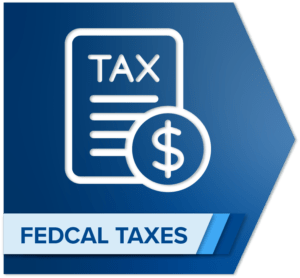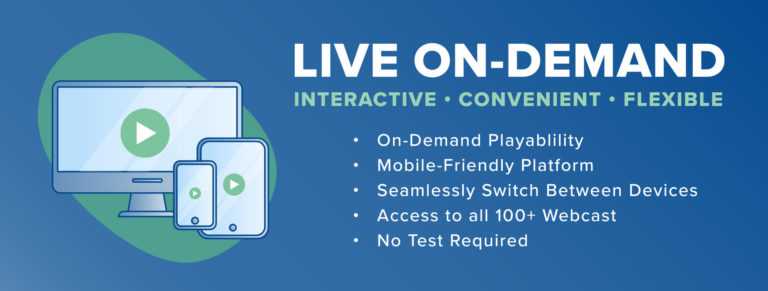
More Tax News from the IRS
Article at a Glance:
- Economic Impact Payment Notice.
- Early bird RMDs.
- COVID-19 IRA retirement plan withdrawals.
- Qualified Opportunity Fund investment delay.
The IRS has been busy with lots of news items. Here are a few items of interest for you and your clients.
- Economic Impact Payment notice. Remind your clients to keep Notice 1444 — “Your Economic Impact Payment”. Your clients may not know this is an important document. They will need the Notice if they qualify for a larger Impact Payment when they file their 2020 tax return. The client may be entitled to a bit more rebate if they have a baby in 2020 or less income (after all, a lot of people are unemployed because of the pandemic.)
- Early bird RMDs. Did your client take their RMD early in the year, not knowing that CARES would waive the 2020 RMD? The IRS has a solution. The taxpayer can redeposit the withdrawal by August 31, 2020. Most taxpayers could redeposit an early RMD by July 15. Notice 2020-51 gives the “early birds” more time to gather up funds to put the RMD back. The Notice provides that this repayment is not subject to the one rollover per 12-month period limitation or the restriction on rollovers for inherited IRAs.
Note. Because of the economy, many clients may want/need to keep the money they withdrew from their IRA or retirement account for themselves or their kids. - COVID-19 IRA and retirement plan withdrawals. Notice 2020-50 was released to help retirement plan participants affected by COVID-19 to take advantage of the CARES Act provisions providing enhanced access to plan distributions and plan loans. This includes expanding the categories of individuals eligible for these types of distributions and loans (referred to as “qualified individuals”). A qualified individual is one who:
- is diagnosed, or whose spouse or dependent is diagnosed, with COVID-19 by a test approved by the CDC or FDA, or
- experiences adverse financial consequences as a result of the individual, the individual’s spouse, or a member of the individual’s household (someone who shares the principal residence):
- being quarantined, being furloughed or laid off, or having work hours reduced due to COVID-19,
- being unable to work due to lack of childcare due to COVID-19,
- closing or reducing hours of a business that they own or operate due to COVID-19,
- having pay reduced, including self-employment income, due to COVID-19, or
- having a job offer rescinded or start date for a job delayed due to COVID-19.
The Notice also provides guidance and examples of how qualified individuals will reflect the tax treatment of these distributions and loans on their federal income tax filings. For more details on the Coronavirus-related relief for retirement plans and IRAs, see IRS FAQs.
Qualified Opportunity Fund investment delay. Notice 2020-39 allows additional time to taxpayers who sold property for an eligible gain and who would have had 180 days to invest in a Qualified Opportunity Fund (QOF) to defer that gain. The Notice provides that if a taxpayer’s 180th day to invest in a QOF would have fallen on or after April 1, 2020, and before Dec. 31, 2020, the taxpayer now has until Dec. 31, 2020, to invest that gain into a QOF. (The 180th day for some of these taxpayers was already postponed through July 15, 2020, under Notice 2020-23.) In addition, the Notice provides that the period between April 1, 2020, and Dec. 31, 2020, is suspended for purposes of the 30-month period during which property may be substantially improved. Other relief on the 90% asset test and the working capital safe harbor is provided in the Notice. FAQs have been updated.
2020 Federal & California Tax Update: Individual
- Instructor(s): Sharon Kreider, CPA & Karen Brosi, CFP, EA
- Credits: 4
- NASBA Category: FedCal Taxes
2020 Federal & California Tax Update: Business
- Instructor(s): Sharon Kreider, CPA & Karen Brosi, CFP, EA
- Credits: 4
- NASBA Category: FedCal Taxes

Sharon Kreider, CPA, has helped more than 15,000 California tax preparers annually get ready for tax season. She also presents regularly for the AICPA, the California Society of Enrolled Agents, CCH Audio, and Western CPE. You’ll benefit from the detailed, hands-on tax knowledge Sharon will share with you—knowledge she gained through her extremely busy, high-income tax practice in Silicon Valley. With her dynamic presentation style, Sharon will demystify complex individual and business tax legislation. She’s a national lecturer for business and professional groups and consistently receives outstanding evaluations. In 2014, she was awarded the prestigious AICPA 2014 Sidney Kess Award for Excellence in Continuing Education.
DIG DEEPER:
How The $3.5 Trillion Budget Blueprint Could Impact Your Clients
The new reporting requirements on brokers are addressed in Section 80603 of the bill. “Broker,” by definition in Sec. 6045 (c)(1), is expanded to include “any other person who (for a consideration) regularly acts as a middleman with respect to property or services…A person shall not be treated as a broker with respect to activities consisting of managing a farm on behalf of another person.” In turn, the bill defines a “digital asset” as “any digital representation of value which is recorded on a cryptographically secured distributed ledger or any similar technology as specified by the Secretary.


